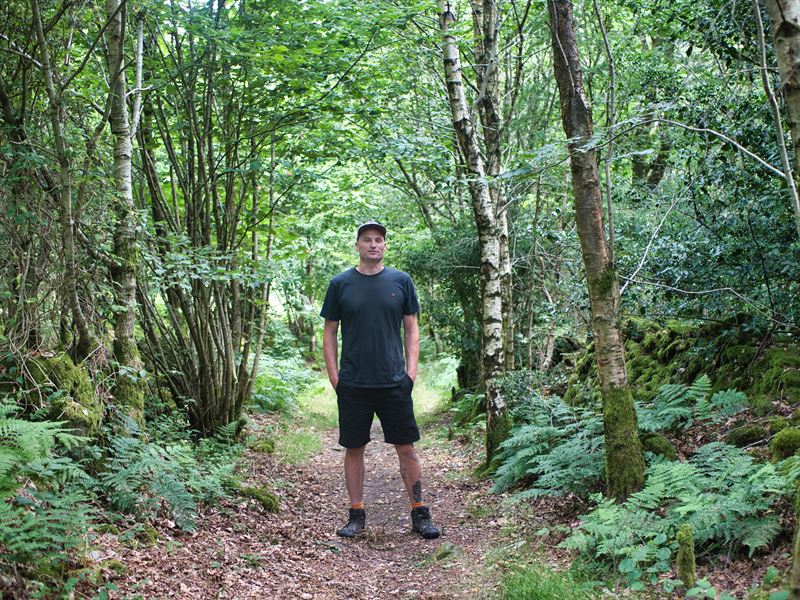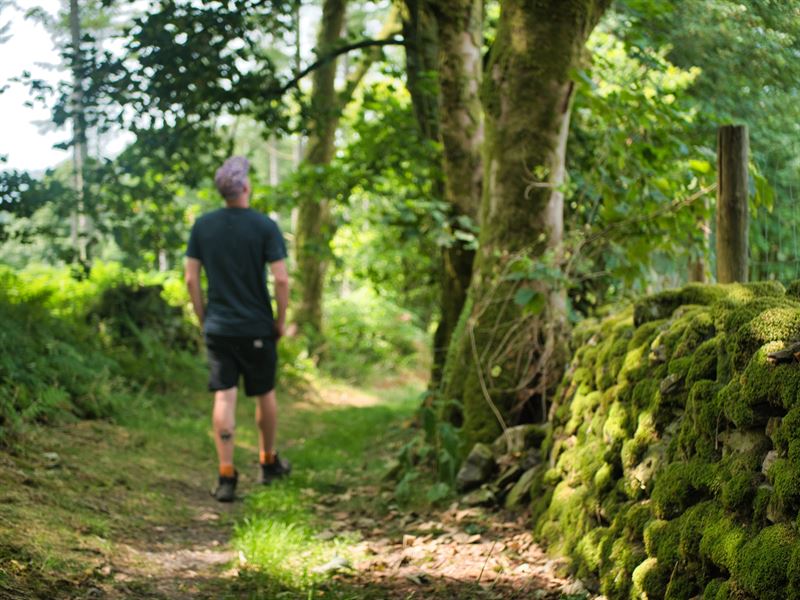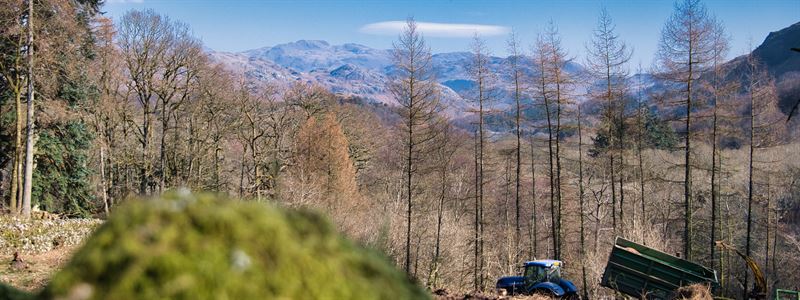Who is Graham?
My name's Graham I come from Belfast in Northern Ireland and I now live in Ulverston, South Cumbria.
How did you get into trees?
I got into forestry through volunteering for the National Trust. The property had just taken back control of the wider demesne, which added 900 acres, most of which was fairly neglected woodland, and working there one day a week I saw the processes involved in restoring the woodlands. It wasn't just as simple as turning up and going for a walk in the woods! This led me to (within a year and a half) shut down my retail business and move into forestry full-time where I got a job as a tree planter and worked my way up to foreman in less than a year. I'm currently doing my masters in forestry through distance learning at Bangor University and study part-time. I have one year left, where I will be writing my dissertation.


What are you involved with at Cumbria Woodlands?
I'm the graduate forester on the Woodland Futures project which focuses on woodland creation and management advice for land owners and farmers in Cumbria. I'm excited about helping increase Cumbria's tree cover in interesting ways. Not just planting everything as solid woodland, we can think about hedgerows, field trees, parkland trees or even orchards! Cumbria has a long history of orchards which has been lost in the last 100 years or so. There are so many different ways to rejuvenate the biodiversity that Cumbria once had and bolster what is still here.
What gets you excited about trees?
This may sound odd for someone working with woodland creation, but I love big old trees. Ancient trees or anything that has interesting features and a bit of character like big, standing dead trees in fields, those markers on the landscape. We need to be thinking about what will replace those trees and be creating future generations of ancient trees.
What's your favourite place in the Lake District and why?
It’s not easy to pick just one favourite! Eskdale valley is pretty special to me, the landscape is absolutely stunning, and it is where I asked my wife to marry me so it will always be special. Devoke Water gets an honourable mention though, its so peaceful, spending an afternoon there swimming, feeling like you’re in another world, is an afternoon well spent.

Tell us more about this project.
The Woodland Futures project will run long-term, until March 2025. Supported by the Lake District Foundation and the Woodland Trust, it will focus on helping farmers and landowners with woodland management and woodland creation, helping them to use trees to make the most of their land. We will be attending auction marts and agricultural shows to engage with people, and we are currently developing training courses to deliver both online and in-person.
Why is woodland management and creation important?
A lot of the UK’s woodlands are neglected or undermanaged, leading to the degradation of the ecosystems and habitats within. Bringing woodlands under management can have benefits for the landowner and wider society, as well as the biodiversity of the woods.
Woodland creation is important as one way to tackle the climate emergency, by capturing carbon from the atmosphere, as well as providing additional benefits such as increased biodiversity, better water quality, natural flood management and more.
How can trees complement farming or other land uses?
There are multiple benefits to be gained from trees on farmland and many options of how to incorporate trees into agriculture. Trees on farms can provide shelter, shade and nutritional benefits for livestock while also boosting grass growth, and improving livestock performance. Planting trees or hedges in the right areas can help increase the rate of water infiltration, while slowing water run-off, improving field drainage and combating soil erosion.
Planting and maintaining hedges at boundaries can also help with the farm’s biosecurity while also providing food and habitat for pollinators and birds, increasing the farm’s biodiversity. Trees can also provide income or financial savings through timber and wood fuel production.
Other benefits of trees include improving soil health, sequestering carbon, and having numerous other societal benefits including having a beautiful impact on the landscape and they can help improve mental health and wellbeing.
What might surprise us about you?
I used to row and swim competitively, and I had a skateboard shop for over 10 years.
Find out more about Woodland Futures CLICK HERE
